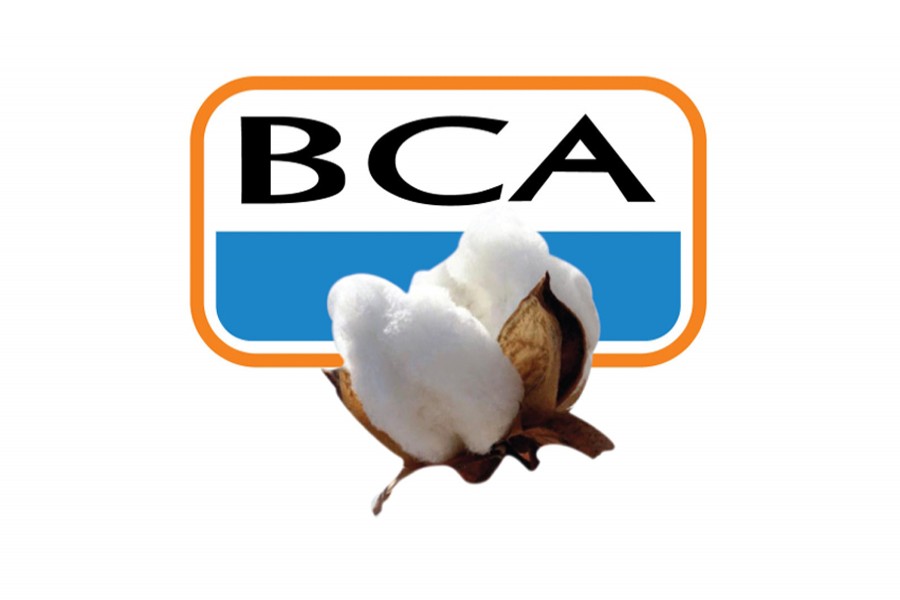Leaders of the country's cotton traders expressed concern over the uncertainty of availability of cotton and its rising high price fuelled by the gap between supply and demand.
They called on readymade garment exporters to be cautious about the rising price of the industrial raw material and to negotiate accordingly in time of receiving their work orders.
They also requested the government to take necessary measures, including setting up of foreign missions in the cotton producing countries especially some of the West African countries and encouraging both foreign and local investment in garment production based on manmade fibre.
Apparel sector leaders, however, said they were actively considering setting up a benchmark of the minimum rate of locally produced garments to help reduce unhealthy price cut practices among exporters in time of taking work orders.
The concerns and observations came at a press conference organised by the Bangladesh Cotton Association (BCA) to explain the current situation amid the high price of cotton in the global market and its impact on local yarn market and exports of readymade garment.
The Association's outgoing president Sultan Reaz Chowdhury made welcome remark at the conference presided over by incoming President Muhammad Ayub.
Explaining the current scenario of cotton, Mr Ayub said the global cotton index hit its decade highest index on September 28 last and maintained its rising trend.
"As cotton harvesting is taking place in most of the cotton producing countries, cotton price was expected to go down. But the reality is different," he said.
Citing ICAC data, he said about 25.7 million tonnes of cotton was forecasted to produce against its estimated use of 25.99 million tonnes in the fiscal year 2020-21, while 25.66 million tonnes of cotton was used globally.
"So we are uncertain what the future price would be and about its availability," he said, adding that they were not getting response against their indent offer from the millers as they (millers) were following a wait and watch strategy.
Bangladesh Textile Mills Association (BTMA) Vice President Fazlul Hoque claimed they had no control on cotton price and that yarn price had not increased as much as cotton.
The BTMA, however, fixed yarn price with consultation with all stakeholders and requested its member mills to maintain the rate until November 30 and informed exporters that yarn price might go up further in December in line with the cotton price.
Bangladesh Knitwear Manufacturers and Exporters Association (BKMEA) Executive President Mohammad Hatem also admitted the global high price of cotton.
Buyers are not offering enhanced prices in line with price hike of the raw material, he observed.
Responding to a question, he said, "We are thinking as to whether we can set a minimum price so that an exporter can't take any work orders below the rate and his or her production cost."
Many of the exporters during the Covid-19 pandemic period took work orders even below their production cost mainly to sustain their business and pay bank loans and workers' wages, Mr Hatem added.
But now there are plenty of work orders and there are ample opportunities for placing more orders due to the electricity problem in China and closure of factories in Vietnam due to Covid, he said.
Mr Hatem called upon the exporters to keep an eye on the rising trend of cotton price and not to quote prices below production cost.
Speaking on the occasion, Bangladesh Garment Manufacturers and Exporters Association (BGMEA) Vice President Shahidullah Azim said they should not be complacent over the flooded work orders.
Due to high freight charges and long lead time here in Bangladesh, many buyers are relocating their sourcing place to Turkey, Bulgeria and other East European countries despite cost competitiveness here in Bangladesh, said the BGMEA leader.
"It is not so easy to set a price benchmark of exportable garment items as it is a free trade economy. But we will try to convince our member mills about the move if we get a regular forecast about the cotton price after a certain period," he added.
Bangladesh Terry Towel and Linen Manufacturers and Exporters Association (BTTLMEA) Chairman Shahadat Hossain Sohel demanded that the government should allow duty free import of all kinds of yarn for one or two years to offset the crisis period.
There is a 37 per cent regulatory duty on import of yarn, he said.
The government should withdraw this high duty to help clothing production meet local demand, he observed.
BTMA and BKMEA leaders, however, opposed the BTLLMEA demand saying the government could allow duty free import of yarn that were not produced locally but used in terry towel making.


